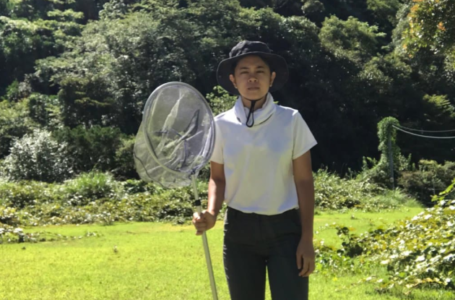A journey of self-discovery leads to a new life in the lush fields of Japan after a life-changing breakup.
“Yes, I left Singapore three years ago for the land of the rising sun after a devastating breakup. Once I quit my job, I had no ties keeping me in Singapore except for my family, who were very supportive, making my move much easier. I was free.”
Since the end of December 2019, I’ve lived in Japan, dedicating myself to the craft of tea farming. I started this full-time and began studying at the Graduate School of Agriculture at Kyoto University last year.
Prior to my move, I worked as a research analyst in Singapore, focusing on utilizing technology in sectors like finance and agriculture, with a particular emphasis on the latter. Yet, I felt it was somewhat disingenuous to teach farmers how to use technology if I lacked hands-on farming experience. So, I thought: “Forget it, I’m going to quit my job and learn to be a farmer.” And that’s exactly what I did.
In essence, I ran away from home for three years to embrace farming, and I have no regrets.
Initially, I was in Japan on a tourist visa for the first three months. I enrolled in a program called Worldwide Opportunities on Organic Farms (WWOOF), which allows you to volunteer on organic farms in exchange for accommodation and food. During this time, I traveled through four different prefectures—Wakayama, Gifu, Tottori, and Kyoto.
As luck would have it, I was offered a working visa by the owner of d
Kyoto as a Farm Production Assistant and Overseas Marketing Lead.
Not to sound cliché, but the timing felt like the universe had a plan for me.
The Vast Farmlands of Japan
Japan is significantly larger than Singapore, providing ample space for farming. While Singapore has begun exploring hydroponics and vertical farming, nothing compares to the experience of working the soil and tending to the fields. Given Singapore’s climate and humidity, growing tea leaves is not feasible, making Japan an ideal location for cultivating this niche crop.
Moreover, Japan experiences distinct seasons, a vital factor in agriculture. The changing seasons directly influence how crops develop and dictate our daily tasks on the farm.
A typical day starts around 8 AM, with our duties tailored to the weather and season. On rainy days, we might prune tea trees or provide shade. Shading is crucial in tea cultivation; it protects the trees from harsh elements and enhances the quality of the matcha by increasing chlorophyll production in the leaves.
When the sun shines, we can apply fertilizers or even harvest leaves. Unlike Singapore, where the climate is consistently warm, experiencing the seasons through farming is refreshing. Summer crops like edamame flourish, while winter brings a bounty of daikon.
I’ve gained a deeper understanding of why certain practices are beneficial during specific times of the year. For instance, we gravitate toward sōmen (cold wheat noodles) in summer and prefer onsens (hot springs) over baths during winter. These seasonal traditions are unique experiences that simply can’t be replicated in Singapore.
The Highs and Lows of Farming
My time in Japan has taught me that farming is multifaceted. To succeed, a farmer must also be a technician, engineer, carpenter, and biologist, absorbing vast amounts of knowledge.
Tea farming is a time-honored Japanese tradition with numerous intricacies, particularly during the growing phase, making it essential to grasp these nuances. Despite the romantic notion of farming, it’s a labor-intensive endeavor.
I remember a particularly grueling summer when we harvested hojicha and genmaicha. On a blistering 40°C day, I was hauling 20 bags of fertilizer across the fields. Overwhelmed, I dropped a bag and screamed in frustration. Thankfully, I was alone at the moment, taking a breather and wondering: “What am I doing here?”
A nearby elderly neighbor noticed and asked, “Are you okay? It’s really hot today, isn’t it?” in Japanese.
Feeling embarrassed, I accepted his offer of a snack and some water.
Another time while rice farming, I found myself thinking, “This is so tedious; I don’t want to do this anymore.”
Yet, despite the many challenges, I’m reminded of my purpose when I gaze across the fields and witness a stunning sunset. There’s something profoundly rewarding about eating what you’ve grown and being able to proudly declare, “I made this.”
Assimilating into Japanese Culture
I moved to Japan just as the pandemic hit, when many visitors were returning home. As a result, I stood out as ‘the girl farming tea.’
The language barrier was the toughest obstacle, particularly in the countryside, where dialects vary widely. Initially, I struggled to comprehend conversations, but as I consistently worked in the fields, the locals warmed to me. They witnessed my commitment, and curiosity led some of the older residents to engage with me.
The Japanese hold great respect for one’s vocation. You can share what you’ve been up to, and they will find it fascinating. This contrasts with Singapore, where the reaction to someone being a farmer might be, “Why would you do that? There’s no money in it, and it’s a dirty job.”
In Japan, every profession commands respect.
Having lived in Japan during the peak of COVID-19, I formed close bonds with the local community. Now, when I’m out with friends from Nara, they’ll say, “We’re all from Nara,” not even mentioning my Singaporean background.
It’s a small yet meaningful shift in how they perceive me, and I’m grateful for it. This tight-knit circle is rare for many foreigners, and I cherish my immersion in their community.
Looking back, I would advise my younger self that this journey will be incredibly challenging. It requires sacrifices, and there will be moments filled with tears—which can be quite therapeutic.
Ultimately, I’ve learned to trust in my choices and to surround myself with those who believe in me—no questions asked.








